mission: impossible - dead reckoning 'part one', part one, or while the iron's hot
in which tom's not here yet
We’re going to ignore everything that has happened on this newsletter in 2025. It never happened. The 2000 Project did not exist. Just as Mission: Impossible - Dead Reckoning Part One was never called that, and has always been called Mission: Impossible - Dead Reckoning. In this modern age, we have the power to alter history. History has duly been altered. Capische?
Many series and two years ago, we left our Tom Cruise series on an upbeat note. Top Gun: Maverick represented his unlikely pop cultural zenith - a smash hit that made very real the myth he had been selling for years, that he was Mr. Movies, an ambassador of the cinematic art. Through the trials and tribulations and sofa jumping incidents that have pockmarked his career, Tom appeared unassailable. Triumphant. The world bent to his will.
All of which was to say, the Mission: Impossible movie that was coming out a few weeks after that newsletter looked dead set to be another hit from the hitmaker. What else could it possibly be?
Dead Reckoning Part One, despite all those positive signs, was not a monstrous hit. In fact, it was the lowest-grossing Mission since the third. While $571 million doesn’t seem like chump change, its monstrously-inflated budget (a product of lengthy COVID shutdowns and other expenses) resulted in, by all accounts, a loss. Hand-wringing and tut-tutting ensued. In the febrile summer of 2023, it sank without a trace.
A loss? What could have happened here? Who converted Tom’s ones to zeroes? Who brought down the King of Movies?
Well, reader, it was a complicated tale. A tale of industry strikes, and of Pavement references. A tale of adrenochroming and Gran Turismo. An epic story of an industry in crisis that, in its lowest moment, rejected Tom Cruise. A story so glutted with tangents and oddball stories that I had to bring this fucking newsletter back to tell it.
Ahead of The Final Reckoning, I bring you this: Mission: Impossible - Dead Reckoning Part One, Parts One, Two and Three: A Three-Part Special Nostalgia Detective event.
In this first part, we’re barely going to cover Mission: Impossible - Dead Reckoning Part One at all. A lot of things happened before Tom showed up.
I don’t know what the Jenna Ortega reference was. Was it a Wednesday?
I’m a big fan of a long-delayed pay-off. Steven Moffat taking three years to resolve most of the mysteries of Matt Smith’s run in Doctor Who? Fine by me. For this reason, I’m delighted to introduce our very own version of Why Did The Silence Blow Up The TARDIS?, which is that we finally had another writer’s strike, and the world of Earth-WGA became a vivid reality, on 2nd May 2023, sixteen years on from the previous walkout.
In 2007-8, it was the advent of the Internet and the profitability of DVD box-sets where writers found themselves seeing few of the benefits. This time around, the industry dissatisfaction seemed more existential. The COVID pandemic’s effects on Hollywood were bigger than just temporary production shutdowns: when things started back up, they went slower and cost more. Plenty of shows and films fell into the void during the COVID pandemic as budgets were tightened and productions were reconsidered for a world of safety protocols. Put simply, there was a sense that the industry had shrunk in the wash as a result of the pandemic.
This post-COVID shrinking effect was made all the worse by the changes already well underway in the industry, especially the rise of streaming TV. In ‘07, the strike’s effects were pointiest on broadcast TV, where shows pumping out 22 episodes year-round fell off the air almost immediately, and returned with shortened seasons. In ‘23, broadcast TV had shrunk in cultural influence and profitability: while there were still plenty of broadcast shows like Abbott Elementary and FBI: NCIS: CIA, which duly returned to TV months late, those effects no lounger felt the most pronounced.
TV has, as we all know, changed quite a bit. In ‘07, the likes of 24, Lost and The Office were the hottest things on the small screen. These days are the glorious streaming age, of Apple TV+ and Paramount+ and Peacock, which does actually still exist. A typical streaming series puts out a season of eight episodes every 18 months if you’re lucky. That hardly matches 22 episodes annually, and it’s all the tougher when you consider that the overall runs of TV series has shrunk drastically, with season 4 or 5 now a rare badge of success for a show. Inevitably, the number of writers’ rooms decreased, and with it the number of staff writing jobs. The stability of writing work, if you could get it, diminished too - a staff job on 24 could be a regular gig that lasting years, while the same job on Severance wouldn’t be nearly enough to hang a career on.
That was just a background issue. The real nub of the streaming age for Writer’s Guild members as they negotiated a new contract with the AMPTP (the association of executives and producers and executive producers who represent the counterpart to the writers’ and actors’ guilds) was residuals, the payments received by creatives for the ongoing shelf-life of their work.
Residuals from DVD sales were a big factor in the ‘07 strike, and history repeated here with streaming: even with the immense popularity of streaming television, the financial compensation for all those eyeballs was pretty minimal. It wasn’t just about the TV being produced in the here and now, either - some of the most popular shows on streaming are ‘library content’, older shows made elsewhere that could receive a whole new life on streaming. 2023 offered a nicely illustrative example in the form of Suits, an already-popular USA Network show that went ballistic when it started streaming on Netflix. People were Suits-crazed in that summer. It’s why there’s an otherwise-unrelated spin-off now on NBC that nobody seems to like.
Sidebar, counsellor.
Fans of the extended Arrowverse knew well that Stephen Amell was an odd duck, so it wasn’t an enormous surprise that he became a brief main character in the actors’ strike, when he opened his big mouth to say this:
“I support my union, I do, and I stand with them, but I do not support striking, I don’t,. I think it is a reductive negotiating tactic, and I find the entire thing incredibly frustrating. And I think the thinking as it pertains to shows like the show that I’m on [Heels], that premiered last night, I think it’s myopic.”
Thank you, Comrade Amell!
He later walked it back and did a lot of very penitent press about his big mouth in the run-up to Suits: LA. Unfortunately, I have still taken the opportunity to laugh at him and his big mouth.
Myopic. What a big vocabulary, Stephen!
There was also a lot of worry about the proliferation of generative AI and the threat it presented to writer’s careers, but due to the very specific plot of Dead Reckoning Part One, we need to put a big Entity-shaped pin in that.
Vibe check: Hollywood, 2023. Good? Bad?
It was a little mixed out there, to tell you the truth.
It had all been going quite well, give or take an Ant-Man and the Wasp: Quantumania or the beginning of the ongoing Zachary Levi incident. Successful and critically acclaimed sequels like Creed III and John Wick 4 kept the lights on. M3GAN gave everyone a new Tik-Tok dance to do. The month of April, which had seemed quiet, became an extended victory lap for The Super Mario Bros. Movie, a movie so punishingly bland that it made video game fans happy. Summer officially began with the solid success of Guardians of the Galaxy Vol. 3, and everyone seemed buckled in for a happy, sunny time.
Maybe it was the writer’s strike that caused the vibes to sour, or maybe an industry that had lumbered out from COVID by greenlighting a bunch of sure-bet sequels was facing the consequences of its own actions. In any case, things got a little weird from there. Fast X landed, in a foreshadowing of the Tom Cruise disappointment to come, as a movie so expensive it was literally impossible for it to make money.
Sorry. Sorry. Last sidebar. I’m never going to follow up on the Fast series I did by covering Fast X. It’s partly because it’s not interesting enough, but also because there will never be a reason to, because the Fast & Furious series is over.
I’m calling it. That’s right. No more Fast movies. I genuinely think that it’s done. For all of Vin Diesel’s insane Instagram musings, nobody really seems to want to make Fast 11. It’s just too much effort at this point. They’re too expensive and everyone gets too tired. The Rock came back in and nobody blinked. Nobody wants to spend the time necessary with Vin Diesel to do this. It’s over. Stick a fork in it.
This does mean the franchise canonically ends with Dom Toretto and his son getting exploded at a dam and most of the crew dying in a plane crash, and that the final ever image of this remarkably persistent series will be fucking Gal Gadot, but that’s how little anyone wants to hang out with Vin Diesel now.
The car has crashed. It’s over.
After Fast, the live-action remake of The Little Mermaid saw the flourishing of a trend that unfortunately continues: the Hitlerification of Disney adults. The decision to cast Halle Bailey as the titular mermaid - and it should be noted that mermaids aren’t real - caused a tremendous amount of fume from people who really, truly cared about the sanctity of Ariel’s skin colour, and had not gotten the memo that mermaids, as far as scientific evidence suggests, are not real.
The furore around The Little Mermaid now seems kind of quaint, thanks to the nuclear-grade insanity surrounding the Snow White remake - and the movie did do okay, all things considered - but none of this was especially inspiring, especially for the big Memorial Day tentpole everyone was hanging on.
The runaway success of Spider-Man: Across the Spider-Verse is inconvenient for our narrative, except to note that it formed another plank of the unlikely Summer of Hollywood Part Ones.
Next came Transformers: Rise of the Beasts, a movie that I saw and that was made. And then! And then!
A March Hollywood Reporter story contained the intriguing news that, after seeing an early screening of The Flash, Tom Cruise had a strong reaction:
Cruise was so taken by what he saw that soon after, he reached out to Muschietti. It was a call out of the blue for the director. Cruise is said to have raved about the movie, saying something to the effect that Flash is “everything you want in a movie” and “this is the kind of movie we need now,” according to insiders.
In fairness to Tom, this was one part of a genuinely massive industry campaign to pump up expectations for The Flash. James Gunn, in his Viking funeral for the old DC universe, referred to it as “probably one of the greatest superhero movies ever made”. Stephen King, in yet another thing I have to deal with, said “It’s heartfelt, funny, and eye-popping. I loved it.”
A year after Top Gun: Maverick blew the roof off CinemaCon in the beginning of Tom’s ride to glory, Warner Bros. screened an unfinished cut of The Flash at the same event and it was as if Christ Himself had returned to Earth. Just see here.
Less than two months later, this cinematic gospel was released to the masses and it was… dogshit. Filled with laughable CGI, a gurning central performance from a criminal and mortifying nostalgia bait that culminated in the black-hearted evil of a cameo sequence that now feels like the starting gun on the world of generative AI in which we live, The Flash was a joke. It was greeted that way, too, panned by audiences and bombing at the box office.
It still remains unclear why Tom Cruise loved it so much.
As the dream of a Flash Summer faded, the indignities piled up. Pixar’s Elemental - despite sincere attempts to astroturf a fandom for Clod - became another reason for industry observers to tear their hair out about what the studio had become. (It almost seems lost to history that Elemental stuck around all summer and ended its run as a success. Inconvenient for us, too.) Finally, Indiana Jones and the Dial of Destiny, another sequel inflated by high hopes, lumbered into cinemas on the backs of a poorly-advised Cannes premiere that saddled the second Indy lega-sequel with weeks of poor reviews and de-aging discourse.
By mid-July, as Dead Reckoning geared up for its world premiere, the ground between Tom’s feet was looking just a touch shaky.
But hey, it couldn’t get any worse, right?
OH NO!!!!
You know what they say. If your strike negotiations with one union break down, then your strike negotiations with one union have broken down. If your strike negotiations with another union break down just a couple of months later, while the first union is still on strike, then you’re the AMPTP, and it’s starting to look like a you problem.
Does that make any sense?
There are a lot more actors in Hollywood than there are writers - SAG-AFTRA (which used to exist as two separate actors’ unions called - you guessed it - SAG and AFTRA) has about 170,000 active members as of the last count, compared to roughly 15,000 combined between WGA East and West. The bigger the room, the harder it is to get agreement: and a strike typically requires almost unanimous agreement in the union.
Actors’ strikes are rare. Joint actors’ and writers’ strikes are even rarer - it had only happened once before, in 1960. Things have to get quite bad for that eventuality. But, in July 2023, our friends in the AMPTP managed it. The double-double.
This was not a scenario anyone wanted. Even as the writers’ strike gave an extra charge to SAG-AFTRA/AMPTP negotiations, the cost of a total walkout was still enough for all parties to decide on a two-week extension beyond the initial contract deadline of 30th June 2023. In the past, an extension of negotiations has been a precursor to an eventual deal - a sign that everyone wants to stay in the room for as long as it takes.
Here, though, the extension was accompanied by a statement by SAG-AFTRA leadership that pretty much signals where things were going:
“In order to exhaust every opportunity to achieve the righteous contract we all demand and deserve, after thorough deliberation it was unanimously decided to allow additional time to negotiate,”
Call me a pedant, but the word “exhaust” does not smack of an optimistic outlook.
The overlap between actors’ grievances and writers’ grievances was quite large. Everyone was feeling the effects of a contracting industry, and the AI worry that I promise we’ll get to, if anything, was more pronounced on the actors’ side.
It can be harder to see the actors’ branch as a labour union full of workers with everyday anxieties about income and health insurance. Ask a man on the street to name a screenwriter and they’ll probably struggle. Ask the same man to name an actor, and they’d have little trouble naming - well, for one, Tom Cruise.
The reason why SAG-AFTRA is so enormous, though, is not because it’s filled with Tom Cruises. The industry is a pyramid with a wide bottom, and that bottom (don’t giggle) is made up of tens of thousands of workday background extras and bit-part jobbers hoping for a line of dialogue on an episode of Doctor Odyssey.
I did say no more digressions, but I need you to know five things first.
These three characters are in a love triangle.
These three characters have discussed becoming a throuple, and had a threesome in episode 6.
Philippa Soo’s character got pregnant during the threesome and doesn’t know who the father is.
This show airs on network television.
This show is executive produced by Ryan Murphy.
It’s difficult to say if this is a major cause of disquiet in SAG-AFTRA, but one of the first things to be cut back once film and television returned during COVID were background actors. You may or may not have noticed, but anything filmed from 2020 to 2022, including the biggest budget productions around, would have had to scale back the number of extras on set to comply with COVID precautions. Those Doctor Odyssey hopefuls? First to go. Murder victims on Chicago Blue? Second to go. There were fewer jobs for absolutely everyone.
So, on 12th July 2023, the actors’ branch were the second Hollywood guild to open up the big box of protest signs and Sharpies, and the industry completely shut down.
Long-term saddos (readers) may remember that the 2007-8 strike’s effect on film was a little diffuse, at least at the top end of the industry. Big-budget productions with completed scripts continued shooting without writers on set, and the results were seen in a crop of half-baked blockbusters like X-Men Origins: Wolverine. Hollywood slowed during that time, but it didn’t stop.
This was also the case for the couple of months between May and July 2023. As writers struck and actors negotiated, the likes of Deadpool & Wolverine, Gladiator II and the Wicked movies continued on trucking.
So, too, did something we took for granted until it was no longer around - the endless press junket circuit for summer blockbuster season, which continued entirely unimpeded until mid-July.
We’ll get to Barbenheimer in a while, but it will be a while.
On 12th July, the entire industry went dark. Nothing could shoot, and nothing could be promoted. All went quiet.
On 12th July, the film then known as Mission: Impossible - Dead Reckoning Part One was released in US cinemas.
Next time, but not next week: We get into the actual movie in question.
Mission: Impossible - Dead Reckoning Part One is a film about the Entity. Therefore, it is a film about the looming danger of artificial intelligence in our technology-dependent world.
So we’ll get into all of that.







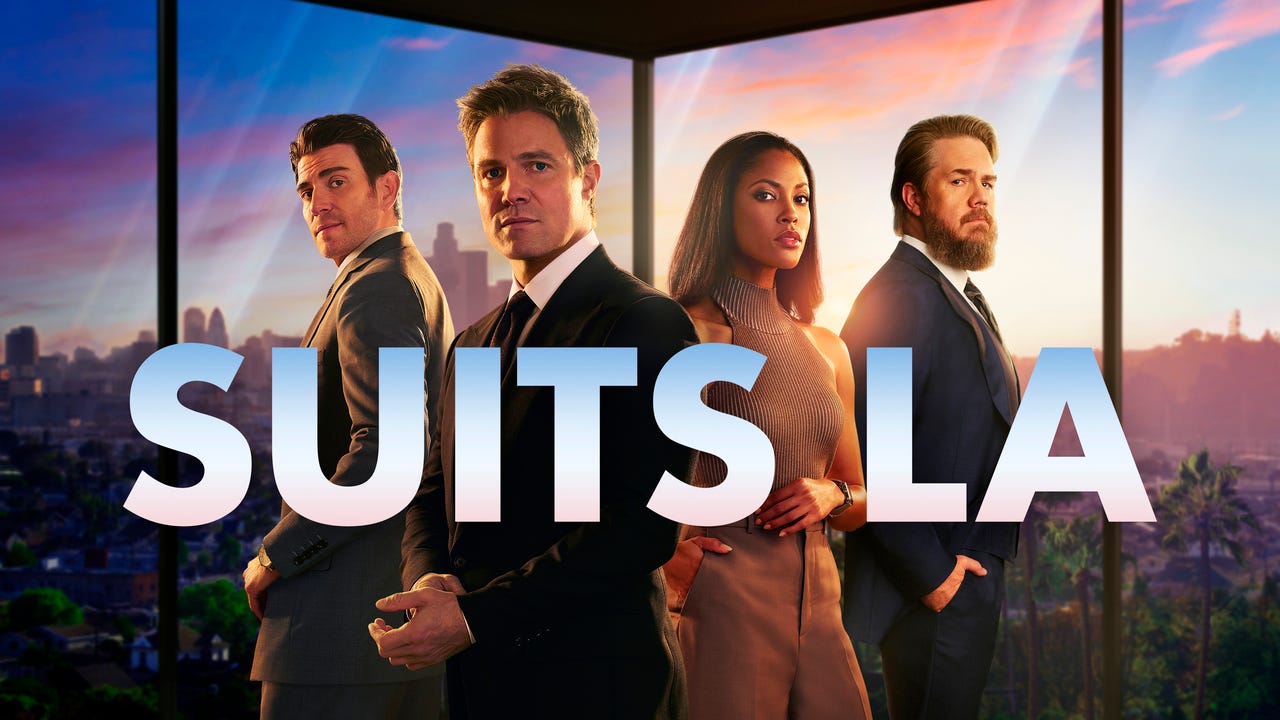
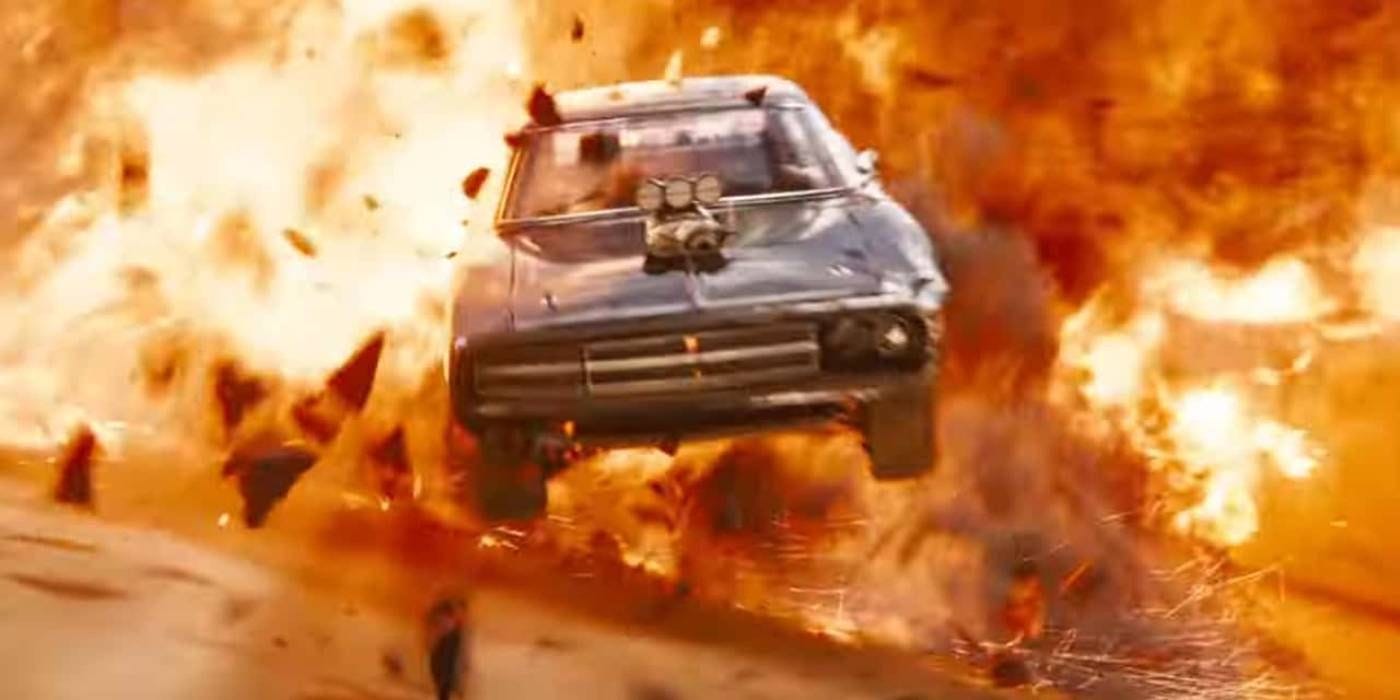
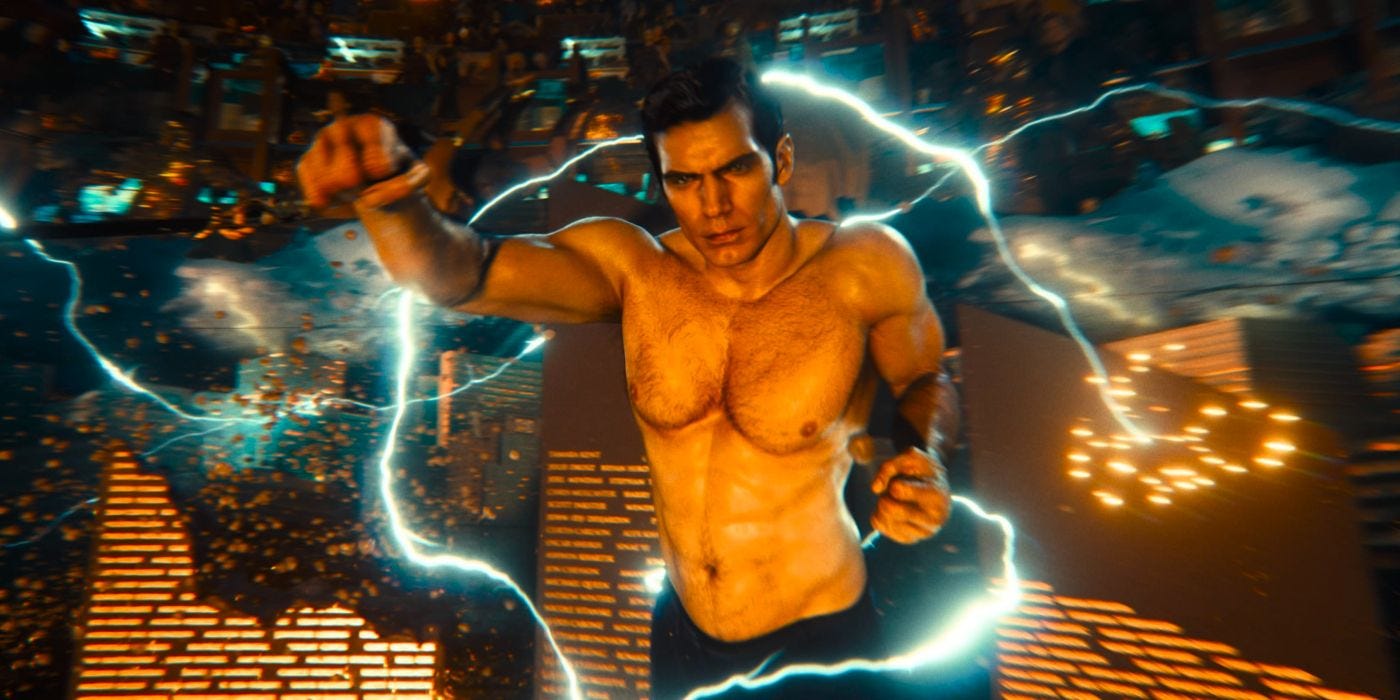
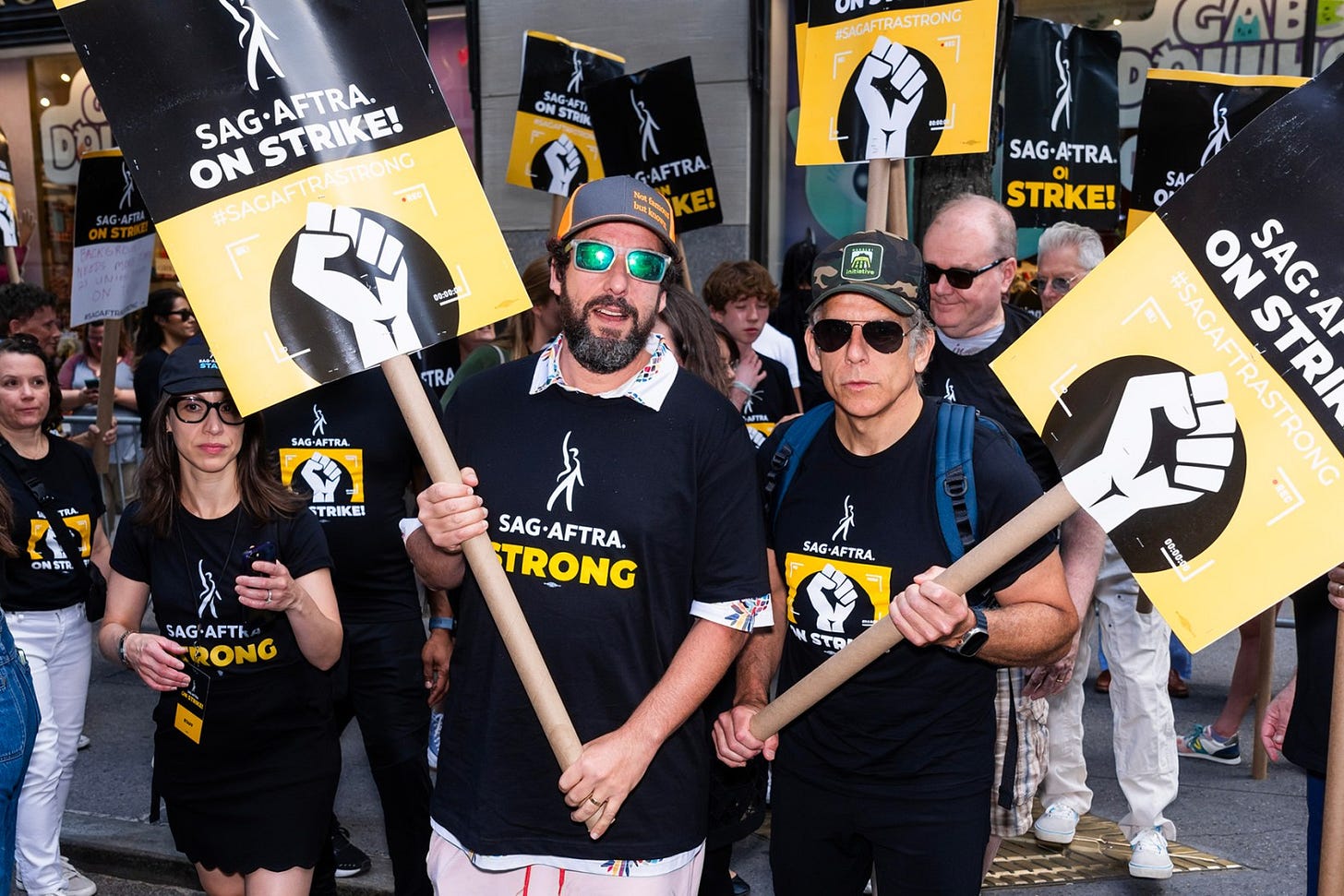
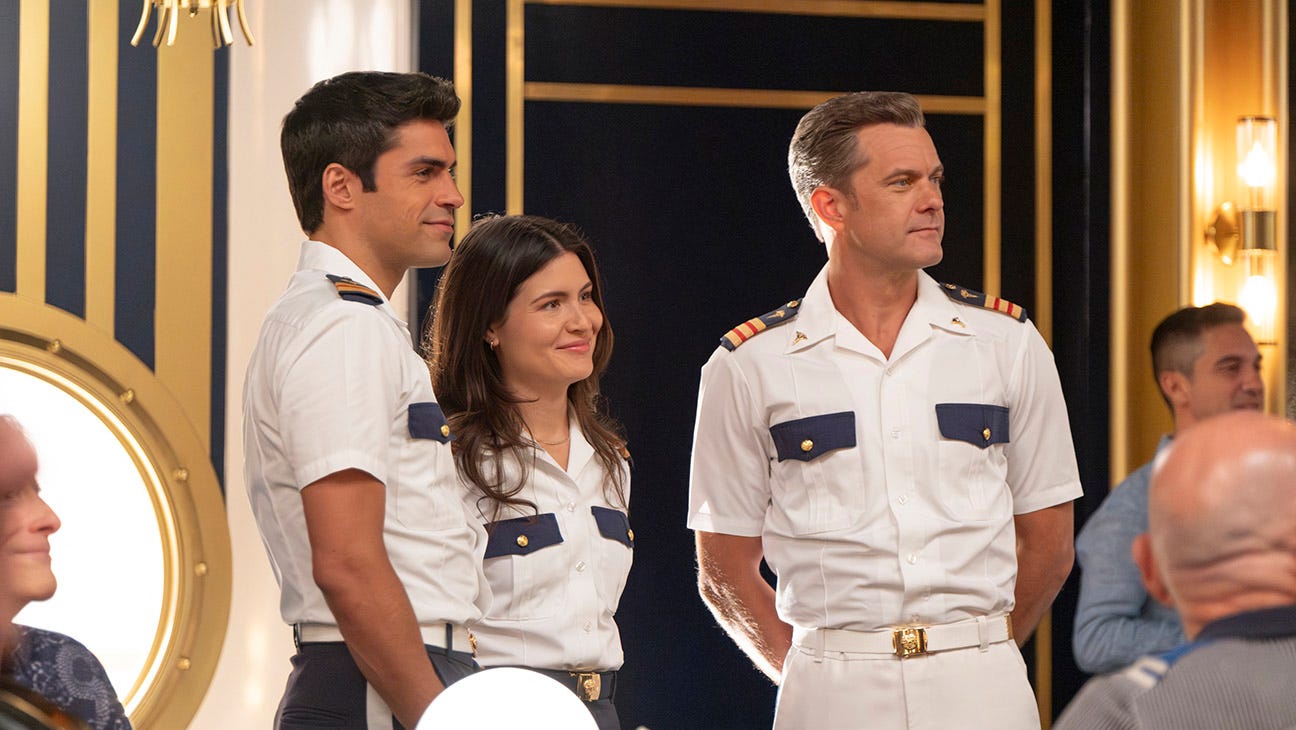

Love to see you return to this series. And if Furious X-2 indeed comes out next year, I hope you'll return to cover that as well!
I think the Jenna Ortega reference was because she'd spoken about rewriting her Wednesday lines on set (in a sort of "I had to take over, the writers didn't get the character" kinda way) which did not go down so well on the picket line